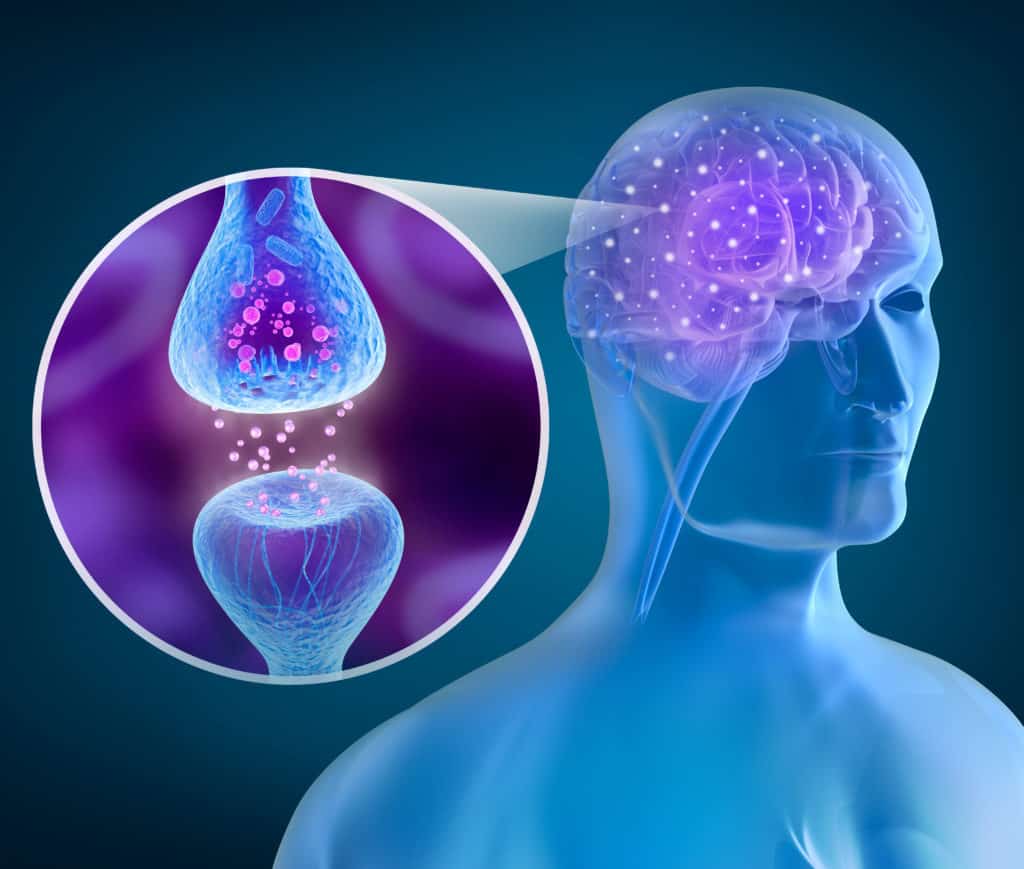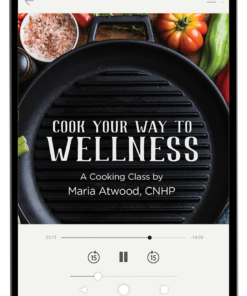The subject of becoming forgetful as we age isn’t new. It’s a secret worry we all feel as we search for lost keys or forget what we went to the kitchen for. The fear of ending up with lost memories in a nursing home is enough to send anyone into a mental meltdown!
Sadly, we’re sometimes afraid to admit these fears to anyone, especially ourselves. Or we’re reserved about talking about because we’re afraid others may think we really are losing it. But I’ve got some good news, so please take a deep breath, relax, and read on. There is hope, but you’d better be ready to get with the program!
I’m truly fortunate to have a great relationship with a very dedicated doctor who has studied this phenomenon for many years, and who has written some excellent books on the subject. Who is it? Dr. Bruce Fife. I also have an excellent contact in Joseph Antell, a nutrition consultant and master herbalist who now trains and mentors other practitioners in the use of Standard Process whole food supplements. He’s a well-known expert in Australian-based Medi-Herb formulas, which are superior in addressing issues where specific potent herbs are called for.
In my interview with Dr. Fife, I was spellbound by the scary but encouraging information he described to me concerning the “forgetfulness” issue. He also talked about other, more serious, brain disorders and how we can keep our precious brain cells from dying, thereby allowing us to live our life without wondering where we left our keys! (Smile)
The Difference Between Forgetfulness, Dementia, and Alzheimer’s
According to Dr. Fife, forgetfulness is an age-related disorder that involves brain cell deterioration, and it’s part of the normal process of growing old. In other words, forgetfulness is not a disease. Depending on how serious you are about changing your lifestyle, there’s a good possibly of improvement. You can make the turnaround to better brain health and start to reduce your forgetfulness. (Or as I now call it, “brain cell starvation.”)
It’s also important to note that forgetfulness, according to Dr. Fife, doesn’t digress into more serious brain disorders such as dementia, Alzheimer’s, and Parkinson’s. These are true progressive diseases of the brain, and though there are ways to improve these conditions, there is no known cure.
What are common behaviors associated with normal forgetfulness vs. early stage Alzheimer’s? “Ten Early Signs and Symptoms of Alzheimer’s” from the Alzheimer’s Association offers some excellent information about behaviors associated with the early stages of Alzheimer’s as opposed to age-related forgetfulness. However, please don’t read too much into these symptoms. Regardless of where you’re at right now, if you’re experiencing any kind of forgetfulness, read the promising information below. It was given to me by someone who truly knows the why and how on this subject.
Lifestyle Changes to Avoid or Ameliorate Brain Cell Deterioration
Ever hear of inflammation? According to Dr. Fife, it’s the single most harmful condition that makes life miserable, and it may be the major cause of brain dysfunction. But what exactly is inflammation?
“Inflammation is your body’s response to stress—especially from a diet consisting of lots of sugar which is a lethal component of inflammation. Lifestyle or environment is also a contributing component. Think of what happens when you catch a cold. You may experience inflammation in the form of a fever as your body heats up to eradicate the effects of the invading virus.
“This kind of inflammation is good, but the modern epidemic of chronic, low-grade inflammation destroys the balance in your body. When your body’s systems experience a constant inflammatory response, you become more susceptible to aging and disease.”
—“Inflammation: The Real Cause of All Disease and How to Reduce and Prevent It” from BodyEcology.com
Personal Note: Most of us think that fever eradicates the invading virus, but how does it work? Raising the body temperature liberates calcium (critical in fighting infection) from the bones. This isn’t the best option, but it’s better than nothing! Such a drastic step only becomes necessary when you don’t have sufficient calcium in your body to fight the infection. Yes, that means fever indicates a need for calcium, so it’s time for Standard Process Calcium Lactate, Cataplex F, and Cataplex C. Inflammation is another signal that the body needs support from nutrient chemicals, and unrelenting inflammation indicates that the healing process isn’t able to move from inflammatory response to healing because we lack these nutritional factors.
Could You Be Sugaring Yourself Into Brain Cell Deterioration?
As we all know, sugar is glucose. The brain is highly dependent on glucose for energy, which in turn nourishes the brain cells. But there’s an important distinction to remember: the brain requires glucose that is safely derived from healthy fats—not straight doses of simple carbohydrates such as refined white sugar. White sugar and its allies destroy pancreatic cells, the very cells we need to produce potent insulin. Refined sources of sugar, and even too much whole, natural sweeteners, coupled with a diet lacking whole protein and food that contain healthy fats, i.e. butter, tallow, coconut oil & lard, will eventually cause insulin resistance, which doesn’t allow the glucose to nourish the brain. Insulin resistance often results in diabetes.
To simplify a complex subject, once you’ve become insulin resistant, your brain cells cannot absorb energy from glucose, and they begin to die of malnourishment. However, since insulin resistance is so extremely common in our population, primarily due to our excessive sugar intake, it’s incumbent on us to find other energy sources that will prevent our brain cells from dying. This can and must be done, especially if you’ve been diagnosed with insulin resistance.
Regardless of whether or not you’re insulin resistant, it’s profoundly important that you stop eating refined sugar in any form. This is Dr. Fife’s most critical advice, and mine also. Look at your food labels, eat low-sugar fruits, and make it a core objective to help your brain cells recover from sugar addiction.
Replacing Sugar with Four Healthy Energy Sources
#1. Coconut oil: Coconut oil is unique in that it converts into ketones, a healthy brain energy source that doesn’t cause insulin resistance. In addition to being an important component of a healthy anti-inflammatory diet, ketones help keep the brain cells nourished, and they can also cross the brain barrier. The recommended dosage is 3–4 tablespoons of coconut oil daily.
To prevent weight gain, be cautious in your intake of other high-calorie foods (especially processed foods). Some people have the misconception that they can eat anything they want (whether it’s simple sugars or a high-calorie healthy diet) and still lose weight, just because they consume coconut oil. However, calories are still relevant, so be prudent when you include coconut oil in your diet. One tablespoon contains 125 calories. Though this is a relatively low-calorie food considering the tremendous metabolic effect it has (which is why it helps us lose excess weight), you should still give up some other high-calorie food when you include it in your diet.
Caution: It’s also vital to include other good fats (raw butter, organic lard, tallow, duck fat) and exclude all vegetable oils in your diet. Coconut oil has no cholesterol, an essential ingredient only found in animal fats. Cholesterol is needed for brain, liver, and gallbladder health. See my blog post “A Nutty Discussion” to understand why eating other healthy animal fats is so crucial.
#2. Exercise: Another great way to promote ketones is with intense exercise. Ketones are created when fatty acids are released from our fat cells—so get some exercise and be both physically fit and brain healthy!
#3. Fasting: This practice has existed for thousands of years. Fasting is important in many religions as a way of bringing the body into a state of subjection. But there are other great reasons to fast for a moderate period of time, including the creation of ketones:
“The opposite of a low fat, snacking lifestyle would be the lifestyle our ancestors lived for tens of thousands of generations, the lifestyle for which our brains are primarily evolved. It seems reasonable that we would have had extended periods without food, either because there was none available, or we were busy doing something else. Then we would follow that period with a filling meal of gathered plant and animal products, preferentially selecting the fat. During the day we might have eaten a piece of fruit, or greens, or a grub we dug up, but anything filling or high in calories (such as a starchy tuber) would have to be killed, butchered, and/or carefully prepared before eating. Fortunately, we have a terrific system of fuel for periods of fasting or low carbohydrate eating: our body (and brain) can readily shift from burning glucose to burning what are called ketone bodies.”
—“Your Brain on Ketones,” from Psychology Today
#4. Low Carb or Keto Diets: Although ketogenic and/or low carb diets aren’t for everyone, you might find that with a little guidance from one of Dr. Fife’s many keto and low carb diets books, and/or by working with a nutritionist, that you’ll lose some excess weight, have more energy, and, yes, foster healthier brain cells.
Dr. Fife has successfully converted those older and less effective keto diets into healthy ketogenic meal plans with great recipes. His many books can be seen here. And you can subscribe to his newsletter here.
#5. You can also take a look at any interesting website, KetoDomain. You will find a good deal of information on a low carb keto diet that offers a 28 day meal plan and a beginners guide.
Additional Whole Food Supplementation
Although ketones will increase your brain oxygen levels and blood circulation, I also recommend some very choice whole food supplements:
Omega-3 fatty acids (DHA and EPA): One of the best ways to help protect your brain cells is to consume high-quality omega-3 fatty acids (DHA and EPA). I recommend Tuna Omega-3 Oil from Standard Process and Fermented Cod Liver Oil from Green Pasture.
How omega-3 fatty acids (DHA and EPA) work to protect brain cells:
- Deliver essential omega-3 fatty acids (DHA and EPA)
- Support the body’s natural inflammatory response function relating to periodic challenges such as consumption of a high-fat meal or strenuous activity
- Support cognition
DHA is crucial to brain efficiency. It influences the structure of our brains and works at the cellular level to encourage prompt and efficient message transfer in and out of the cells. DHA helps the cell membranes open and close properly, helping us to think, remember, maintain a positive outlook, and meet life’s ups and downs with greater emotional stability.
Ribonucleic Acid (RNA): Derived from yeast, Ribonucleic Acid (RNA) supports cell replication and protein synthesis. RNA also promotes healthy cellular growth and development.
Ginkgo Forte: This is another essential supplement to protect the brain. The benefits of Ginkgo Forte include:
- Supports memory and cognition
- Promotes alertness and mental clarity
- Helps support healthy mental function
- Supports good health in older adults
- Supports and encourages healthy blood circulation
- Provides antioxidant activity to help protect cells and other tissues
- Beneficially modulates cortisol during periods of stress
A fun no-bake cookie recipe:
Super Snack, Sugar-Free, No-Bake Coconut Cookies 
—Adapted with permission from Nicole Eckman, RD
These cookies are a great way to get more coconut oil into your diet and prevent a hypoglycemic event from coming on. Children love them, and they offer great antimicrobial properties to kids who have colds. They contain no sugar and therefore make for a safe snack. If you get slightly nauseous when you eat them, it may be an indication that you have a gallbladder or bile issue that prevents you from digesting fat properly.
Special medicinal effect: Eat as a snack as soon as you are aware of a hypoglycemic event or in time to prevent one.
Ingredients
1½–2 cups unsweetened coconut flakes
2 tablespoon raw carob powder (optional)
½ cup coconut oil, slightly melted
¼ teaspoon vanilla extract
1 tablespoon organic almond or peanut butter (optional)
Instructions
- Pulse all ingredients in blender or food processor until creamy, stopping to scrape down the sides and bottom. If mixture is too dry, add 1–2 tablespoons coconut oil at a time to insure it doesn’t get too runny. (Dryness might also be caused by larger coconut flakes, so adjust amount if needed.)
- Line a cookie sheet with parchment paper so the cookies are easy to remove from the cookie sheet.
- Scoop a tablespoon (or a bit more) of dough into the palm of your hand. Squeeze into the shape of a small ball. The dough should be sticky enough to stay together. Place coconut ball onto cookie sheet, and flatten gently into round “cookies.” Store in fridge or freezer until solid. These no-bake cookies may usually be left on the counter after they have been frozen (depending on the heat of your kitchen).
Afterthoughts From The Traditional Cook
Did you know that restaurants cook a good deal of their foods in aluminum pans? Yes, aluminum is cheap and good conductors of heat, however, please take a moment to read this article:
“A group of patients with inherited forms of Alzheimer’s disease was found to have extremely high brain-aluminum levels, leading researchers to suggest there might be a link between genetic vulnerability to the condition and a higher susceptibility to accumulate aluminum in the brain.”
−Excerpted from Alzheimer’s News Today.
If you are eating most of your foods in a restaurant your poor brain may be harmed by the accumulated amounts from both aluminum cooking utensils, as well from deodorants and other products that contain aluminum. Cook at home and use the Weston A. Price recommended cooking utensils. In addition to those recommended cooking utensils on the Weston A. Price website, I use and highly recommend Visions glass cookware.
Note from Maria: I am a Certified Natural Health Professional, CNHP, not a medical doctor. I do not diagnose, prescribe for, treat, or claim to prevent, mitigate, or cure any human diseases. Please see your medical doctor prior to following any recommendations I make in my blogs or on my website.
Images from iStock/jpkirakun (main), alex-mit (human brain), ALLEKO (cookies).





I was reading your article Dark Side of Broth which frightened me a little as I have been doing the GAPS diet for 1.5 years, with my mother who had Chemical poisoning which made her hallucinate (szchizophrenia) she no longer has her symptoms and lives a normal life because of this diet. On the other hand, I have been experiencing insomnia (this is not new), tinnitus, forgetfulness and blurred vision. So your article alerted me and am thinking maybe I have the leaky brain (high glutamic acid) and this is why I am experiencing this. Should I stop making bone broth for myself and for my mother. We live on an organic biodynamic farm, We are all organic, grass-fed I follow Weston a price and Natasha Mc bride’s work. No sugar or processed foods, just some honey and maple syrup with desserts. I take blue ice cod liver oil, we press our own olive oil, avocados, I don’t take the tuna you mentioned so may get that, i just started the ribonucleic acid. So confused as to why I am still having these problems and they seem to be getting worse. I do exercise. I am 47 so maybe it’s just menopause although I don’t feel I have other symptoms of it. My big question is whether to continue the bone broth. I also give it to my kids every day, is it harmful every day?
Hello Jeanene, Maria asked me to reply the following to you:
Sorry to hear of all the various issues your experiencing! – I would however not be afraid of bone broth if you are not allowing it to simmer for more than 6-12 hours; however I am not as expert on the effects of bone broth regardless of how you prepare it, but I don’t allow mine to be simmered for 24-72 hours as many do. My advice is to call a real GAPS and bone broth expert. She would no doubt be able to nail the problems for you in no time. Her name is Kim Schuette and she is also the vice president of the Weston A. Price Foundation. Here is her information: http://www.biodynamicwellness.com/about-us/
Be well and thanks for sharing my work,
Maria Atwood, CNHP